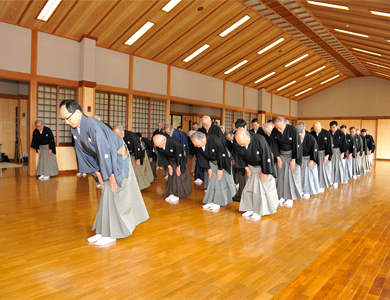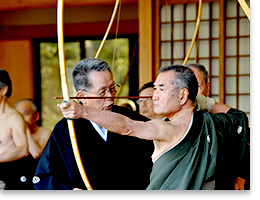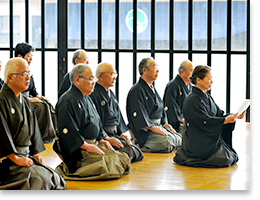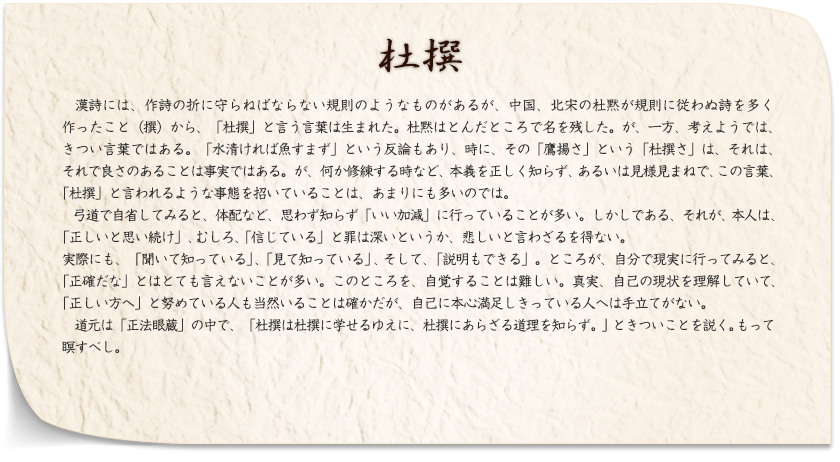Home > 一語一得 / One Story, One Lesson


In Chinese poetry, there are certain rules that need to be followed in order to construct a poem properly; however Du Mo (杜黙 ? Tomoku in Japanese), a Chinese poet from the Northern Song Period(960 ? 1127)wrote many poems (this act is referred to as Sen撰 in Japanese) in which he did not follow these rules. Thus from his actions the word Zusan (杜撰 - a combination of To 杜 and Sen 撰) which means carelessness was born. The word Zusan is what made Du Mo famous, but if you think about its meaning it’s a rather harsh word. “A clear stream is avoided by fish” is a saying that gives an opposing view that sometimes being “liberal” within carelessness can be a good thing. But when we are training and we do not understand its underlining principle or only trying to imitate what we see, then this is in most cases would be considered “carelessness” or Zusan.
Reflecting on Kyudo, most people doing Taihai carrying it out without thought and rather irresponsibly. However, they themselves “believe” or “trust” that they are doing it correctly which would be a mistake and deeply sad to see. In fact, we can “know by asking”, “know by watching” or even be “able to explain” what we are doing verbally. However, when we actually try to carry it out, often times we are unable to say that we are doing it “correct” but it is at these moments it is difficult for us to be self-aware. In truth, there are many who are working hard to understand their present condition and strive “to do what is correct”, but there are no means of doing this if one becomes too satisfied with themselves.
Dogen (道元), a Zen Buddhist priest who wrote the Shobogenzo (正法眼蔵 ? Treasury of the True Dharma Eye), presented some harsh words, “Carelessness is learning carelessly; within carelessness the truth will never be known.” More reflection is needed.








